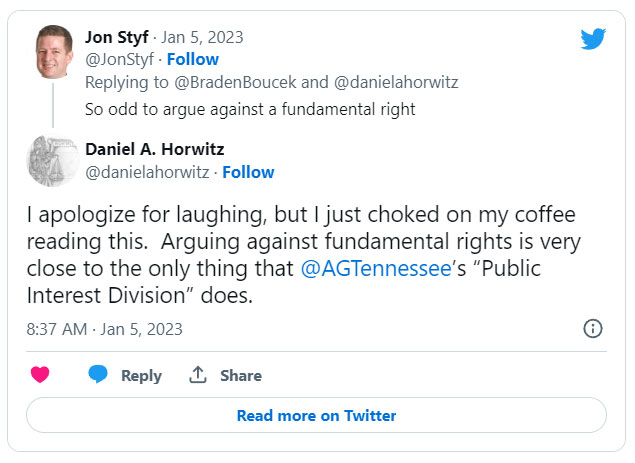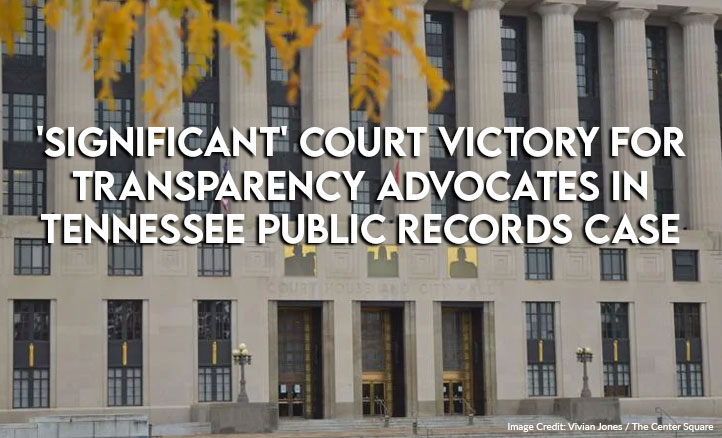Lawsuit win was over ‘deliberative process’ privilege used by state officials to deny requests.
Photo: The Davidson County Metropolitan Courthouse in Nashville, Tenn. Photo Credit: Vivian Jones / The Center Square
The Center Square [By Jon Styf] –
The Tennessee Coalition for Open Government is calling a public records victory for the Nashville Post “significant” after the news outlet succeeded in its lawsuit to force Gov. Bill Lee’s office to release a report on how his administration responded to the COVID-19 pandemic.
Davidson County Chancellor Pat Moskal ruled this week in favor of the Nashville outlet after Lee’s office had denied a records request to Scene for the $3.8-million report from McKinsey & Co. The governor’s office claimed “deliberative process” privilege in which a public entity claims that a record is being used in deliberations and thus cannot be released to the public.

The Tennessean reported on Thursday that Lee’s office has shown an increased used of the claim, with 61 public records denials citing “deliberative process,” which is not an exemption in the Tennessee Public Records Act but instead is derived from a ruling related to discovery in a court case regarding communications between high-ranking government officials “developing and implementing law and public policy.”
“I think it was significant because you had a judge that sort of put the brakes on the state’s really broad interpretation of the deliberative-process privilege,” said Tennessee Coalition for Open Government Executive Director Deborah Fisher.
Lee’s office isn’t the only one that has claimed “deliberative process” while rejecting a records request. The Metro Nashville Mayor’s Office used the same reasoning for denying the release of internal communications related to negotiations on a $2.1 billion Tennessee Titans stadium.
In the Nashville Post case involving Editor Stephen Elliott, Tennessee Deputy Attorney General Janet Kleinfelter argued that releasing the documents would chill government officials from making decisions in the future and the “privilege is rooted in the ‘obvious realization that officials will not communicate candidly among themselves if each remark is a potential item of discovery and front page news.'”
Fisher said that she sat in on arguments in the case and Kleinfelter also claimed that the government needed to keep the report private to prevent “Monday Morning quarterbacking” of the governor’s decisions.

In response to a comment about questioning government being a fundamental right, Nashville constitutional Attorney Daniel Horwitz indicated that the challenge was common from the Tennessee Attorney General’s office.
“I apologize for laughing, but I just choked on my coffee reading this,” Horwitz wrote. “Arguing against fundamental rights is very close to the only thing that @AGTennessee’s “Public Interest Division” does.”

Horwitz noted that it was great the Tennessean reported on the 61 denials, calling deliberative process a “comically bad faith” application of law. But he said that what really would matter is if the news organization sued each time deliberative process was used to prevent a public records release instead of “taking it on the chin.”


About the Author: Jon Styf, The Center Square Staff Reporter – Jon Styf is an award-winning editor and reporter who has worked in Illinois, Texas, Wisconsin, Florida and Michigan in local newsrooms over the past 20 years, working for Shaw Media, Hearst and several other companies. Follow Jon on Twitter @JonStyf.


